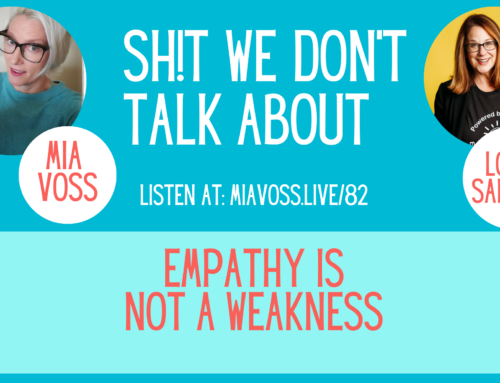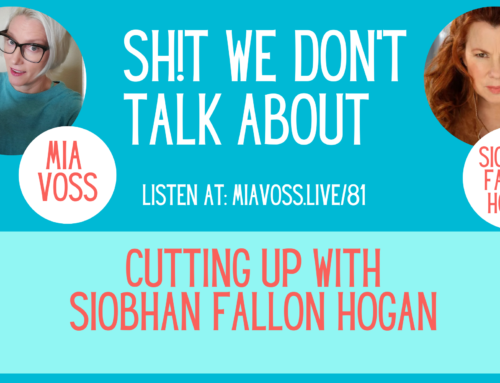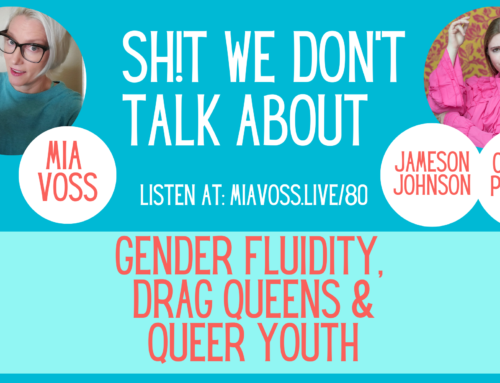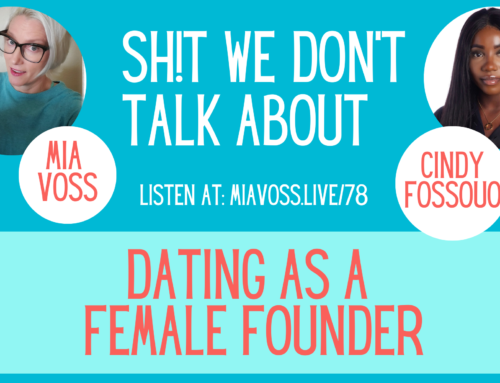Elizabeth Anne Hamilton lived most of her life thinking that she was completely broken. An Autism diagnosis at the age of 41 turned out the be the missing piece in Elizabeth’s mental health and well-being puzzle.
THE HIGHLIGHTS
- Elizabeth was given a diagnosis of depression at age 10. Oddly, all the brain chemistry meds and depression interventions were not helping. This was a clue.
- When she found herself relating so strongly to Autism and neurodiversity memes, and at a loss for why things “weren’t working” for her, she finally reached out to a professional specializing in Autism.
- Getting a proper diagnosis – learning that she was NOT broken – made a huge difference in Elizabeth’s life. Having an explanation for her continued struggle became a highly liberating turn of events, allowing her to start to make changes that needed to be made in her life.
- A large percentage of the research into identifying and diagnosing Autism is based on the behaviors of young white boys. This seems …. problematic.
- A very small percentage of the money spent on Autism research goes toward helping people with Autism live productive lives. Also problematic, to put it mildly.
- Elizabeth has also been diagnosed with PTSD and ADHD. Here’s the rub. Autism demands order and structure. ADHD … not so much! This can present problems and lead to feelings of overwhelm for people that are dealing with both issues at the same time.
- “Masking” is the process by which neurodivergent people learn to mirror the behaviors of others in order to “fit in” when they feel that they absolutely do not fit in. This is very common and can be emotionally draining over time.
- Some research suggests that the amygdala is smaller in the brains of Autistic people. The result is a muted threat detection and fight/flight response that often leads to Autistic people falling into toxic or even dangerous relationships where they trust too easily and miss red flags and danger signs. There appears to be a higher incidence of sexual abuse and trauma among Autistic girls and women.
- There’s a reason we use the term “spectrum”. Autism affects people in many different ways. Some Autistic people need more support. Some less. All cases are normal.
- One of the silver linings of the COVID-19 pandemic was the realization that sometimes people need adjustments and accommodation. For over a year, we ALL needed accommodation in terms of access to our social groups and institutions. When everyone is forced to feel “disabled”, we finally see those members of society that need support and accommodation, and consideration all the time, not just during a global pandemic.
- Being honest and open about her diagnosis and her struggle has been difficult, but it has given the people in her life the chance to see that and give her what she needs. As it turns out, telling her story is a win-win for everyone!
About Elizabeth:
Elizabeth Anne Hamilton is the owner of Flying Circus Media Group and host of the “Weirdo” podcast, focusing on her experiences as an Autistic person in business with a later-in-life diagnosis. It’s good! Find Elizabeth here:
Become a full-time supporter of Mia and the podcast at https://anchor.fm/miavosslive/supportFind Mia On Social Media here.
Listen and subscribe to the podcast:
Apple Podcasts | Spotify | Google Podcasts | RadioPublic | PocketCasts | Anchor

Music Credits:
Inspiring Experience by Rafael Krux
Link: https://filmmusic.io/song/5670-inspiring-experience-
Inspirational Infinity Of Space by WinnieTheMoog
Link: https://filmmusic.io/song/6593-inspirational-infinity-of-space
License: http://creativecommons.org/licenses/by/4.0/









Leave A Comment